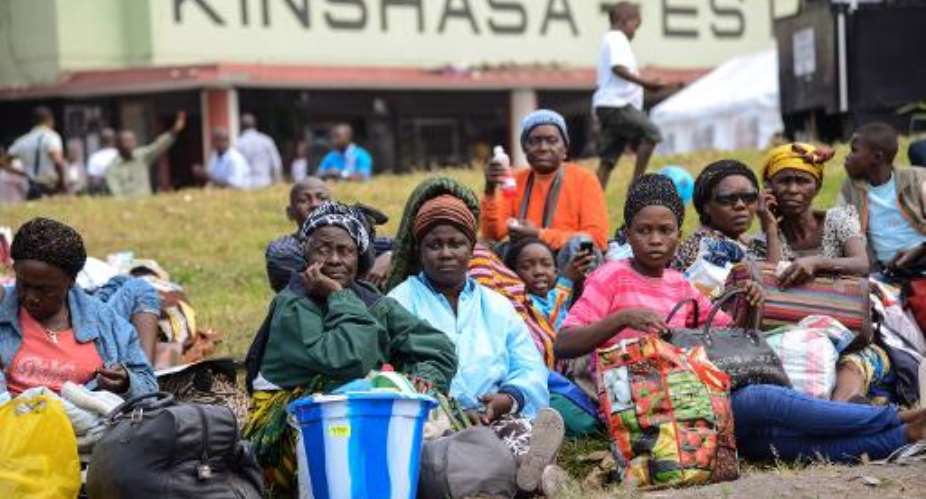Kinshasa (AFP) - Tens of thousands of Angolans living in the Democratic Republic of Congo were set to return home, for some after more than 50 years in exile, the UN refugee agency said Tuesday.
A first group of 500 people left Kinshasa by train during the day and would stay overnight at a transit centre in Kimpese in the southeast on the way to the border, Celine Schmitt, spokeswoman for the UN High Commissioner for Refugees (UNHCR), told AFP.
"The rest of the journey will take place by bus," she said.
About 29,000 people are concerned in this last major voluntary programme to take Angolans back to their homeland, following 76,000 others who have returned since 2003 under the joint oversight of both governments and the UNHCR.
A handover ceremony is due to be held on Wednesday on both sides of the border, officials said. When the first batch of former refugees arrives in Angola, transport will be provided to take people to their different home provinces.
The first Angolans who sought new lives in the DR Congo were fleeing conflict and brutality by Portuguese forces after an independence struggle erupted in 1962. In April 1974, soldiers in Portugal overthrew a dictatorship and a newly installed regime pledged swift independence for African colonies.
But once oil-rich Angola became independent in November 1975, the country was ravaged by a civil war among rival armed movements for 27 years. The conflict displaced hundreds of thousands of people and many fled abroad.
About 48,000 Angolans are estimated to live in the DR Congo, and some 18,000 of them wish to remain.
Schmitt said that "12,000 have already obtained their residence permit and the 6,000 others will soon get them."
The latest repatriation effort could take until 2016, under a tripartite agreement signed late in July in the Angolan capital Luanda by the UN agency and representatives of both governments. Previous large operations occurred in 2003, 2007 and 2011-2012.





 Dumsor: Energy sector ‘shepherdless’ – Nana Amoasi VII
Dumsor: Energy sector ‘shepherdless’ – Nana Amoasi VII
 Train accident: Four more grabbed and remanded
Train accident: Four more grabbed and remanded
 Gov't to consolidate cash waterfall revenue collection accounts
Gov't to consolidate cash waterfall revenue collection accounts
 Gov't to settle lump sum for retired teachers by April 27
Gov't to settle lump sum for retired teachers by April 27
 Former PPA CEO granted GH₵4million bail
Former PPA CEO granted GH₵4million bail
 Dumsor: The darkness has exposed you; you’ll go down as the worst in Ghana’s his...
Dumsor: The darkness has exposed you; you’ll go down as the worst in Ghana’s his...
 Dumsor: The ‘incompetent’ person provided a timetable whiles those who came to s...
Dumsor: The ‘incompetent’ person provided a timetable whiles those who came to s...
 Defend, ensure NPP’s good works are ‘sold’ and highlight the ‘bad’ state of the ...
Defend, ensure NPP’s good works are ‘sold’ and highlight the ‘bad’ state of the ...
 Bawumia will rank high ahead of Mahama in any anti-corruption test — Salam Musta...
Bawumia will rank high ahead of Mahama in any anti-corruption test — Salam Musta...
 NPP trying to bribe us but we‘ll not trade our integrity on the altar of corrupt...
NPP trying to bribe us but we‘ll not trade our integrity on the altar of corrupt...
